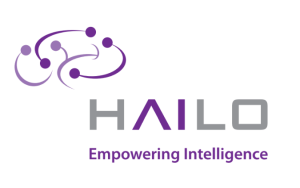For the longest time, chips were a little bit boring. But the revolution in deep learning has now opened the market for startups that build specialty chips to accelerate deep learning and model evaluation. Among those is Israel-based Hailo, which is building deep learning chips for embedded devices. The company today announced that it has raised a $12 million Series A round.
 Investors include Israeli crowdfunding platform OurCrowd, Maniv Mobility, Next Gear, and a number of angel investors, including Hailo’s own chairman Zohar Zisapel and Delek Motors’ Gil Agmon.
Investors include Israeli crowdfunding platform OurCrowd, Maniv Mobility, Next Gear, and a number of angel investors, including Hailo’s own chairman Zohar Zisapel and Delek Motors’ Gil Agmon.
Hailo tells me that it will use the new round, which brings its total funding to $16 million, to further develop its deep learning processors. The company expects samples to reach the market in the first half of 2019. Those chips will be able to run embedded AI applications in a wide range of settings, including drones and cars, as well as smart home appliances and cameras.
The key market for Hailo is the car industry, though. In that respect, it’s following in the footstep of other Israeli startups like Mobileye, which Intel eventually acquired.
“The 70-year old architecture of existing processors is inadequate to meet today’s deep learning and AI processing needs,” says Orr Danon, Hailo CEO. “Hailo is revolutionizing the underlying architecture of the processor to boost deep learning processing by several orders of magnitude. We have completely redesigned the pillars of computer architecture – memory, control and compute – and the relations between them.”